Cultural Heritage
Cultural heritage… it’s something we don’t think much about. Our families gather around the dinner table for perhaps a celebration or at holiday time. Perhaps it’s a summer BBQ when we gather with family and don’t even discuss it.
What am I referring to?
This post contains affiliate links that help keep this website running. By purchasing through our links, we make a small commission at no extra charge to you. Thank you for your support!
Your cultural heritage.
What do I mean by that?
Your Cultural Heritage
Cultural heritage encompasses many things. It refers to our ethnic roots, of course, but it also includes our cultural teachings and personal experiences. It’s about who we are and where we come from. It also includes where we are today.
The Oxford English Dictionary defines ‘heritage’ as ‘property that is or may be inherited; an inheritance’, ‘valued things such as historic buildings that have been passed down from previous generations’, and ‘relating to things of historic or cultural value that are worthy of preservation’.
So what’s this post all about and why am I talking mainly about the past – about heritage?
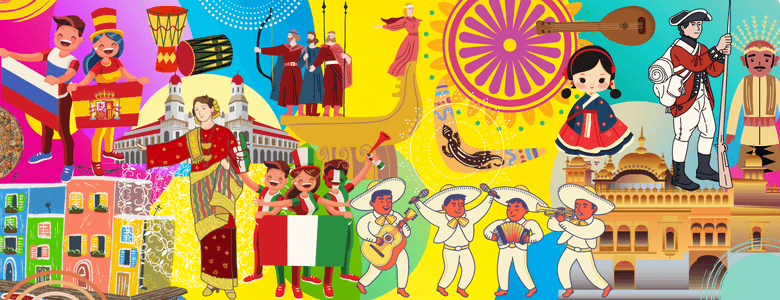
How Can You Tell Your Heritage?
Ultimately, the most accurate way to identify your origins is through genealogical research and DNA testing. DNA testing might help you find relatives you may not have met before. Neither Gary nor I have done this. We’ve thought about it and considered it… but we haven’t gone through the process. Not sure why.
Different Meanings of the Word “Heritage”
Cultural heritage brings to mind different thoughts for different people, and technically it should. A person’s heritage is unique as is each family identity. Traditions, values, and culture are passed down through generations. It’s these that we incorporate into our own lives and pass along to our children.
Are you part of a family that defines your heritage primarily by your ethnic, cultural, or national identity? Or, are you part of a family that identifies more with values that have been passed on – such as a strong work ethic, a love for education or music, athletics, or even perhaps religious devotion?
Another Cultural Heritage Approach
Another approach to discovering cultural heritage is to research your family tree and family stories. Here’s where we get into the base of this post.
You should be aware by now if you are a long-term supporter of our blog and story, that Gary and I were granted dual citizenship with Italy through Gary’s bloodline or Jus Sanguinis in 2018. A long and frustrating process. Jus sanguinis is a principle of nationality law by which nationality is determined or acquired by the nationality of one or both parents.
What We Learned and Want to Share
Through the process of obtaining Italian citizenship, we immediately became aware that there was much history – cultural heritage information – we didn’t know about Gary’s Sicilian family. Information we needed for the citizenship process.
We realized how essential it is to share your family history with other members of your family. Especially your children. How often now as adults do Gary and I wish our parents and grandparents were around to ask questions? To find out more information about their past and their stories from growing up.
As I said in the beginning… it’s something we don’t think about. Until we need it. Until we need or want information about where our grandparents and parents grew up, and where they went to school or church. About their stories of their parents and siblings. How did our grandparents and parents meet and what was life like for them?
Some of you might be very lucky and have all this information. There are many blank areas for Gary and me. The people we could easily get these stories from are not with us anymore. Why didn’t I ask my parents and grandparents about their lives growing up when I had the chance? I never took the opportunity just to sit and listen to their stories. I regret this now.
A Possible Solution
In this upcoming year, both Gary and I are each going to take an hour each month, perhaps more if needed, and video ourselves telling some stories. We’ll start with our grandparents for the information we know and move on to our parents and then ourselves. Clips of us continuing our efforts to share our heritage. We’ll see what Gary thinks of this idea when he reads this post.
Perhaps it was recording our recent audiobook of Our Italian Journey that made me realize that writing is not enough, at least for me. I think hearing our voices and even better seeing us through video telling the stories will be something our children and grandchildren will treasure when we too are gone.
What You Can Do to Honor Your Heritage
For many, the most meaningful way to honor your cultural heritage is to include parts of it in your own lives. You might choose an activity or a tradition that helps you feel connected to loved ones. Family heirlooms and family photos may be displayed in our homes.
Final Thoughts on Cultural Heritage
If you have the joy of your grandparents and parents still in your lives – honor your heritage by spending time learning and listening to their stories. Take notes and perhaps even go through family photo albums together and make notations about who is in each photo. They remember, but it could be a face you are not familiar with or a family member you never met.
Take the time to interview relatives, gather family recipes, label old photos, and listen and perhaps take notes of their stories. If possible, perhaps schedule a family road trip to ancestral hometowns. Connect to past generations. Don’t wait until it’s too late and you have to reconnect the puzzle pieces.
Please leave a comment and share any ideas you might have for sharing your family’s cultural heritage for future generations.
Both these books beautifully capture the essence of Italy, its people, and the strong sense of community that defines life in small Italian towns. With lyrical prose and reflections, Ilene & Gary invite readers to accompany them on a journey of self-discovery and transformation in the heart of Tuscany.
Both books have won the Reader Ready “Recommended Read Award”
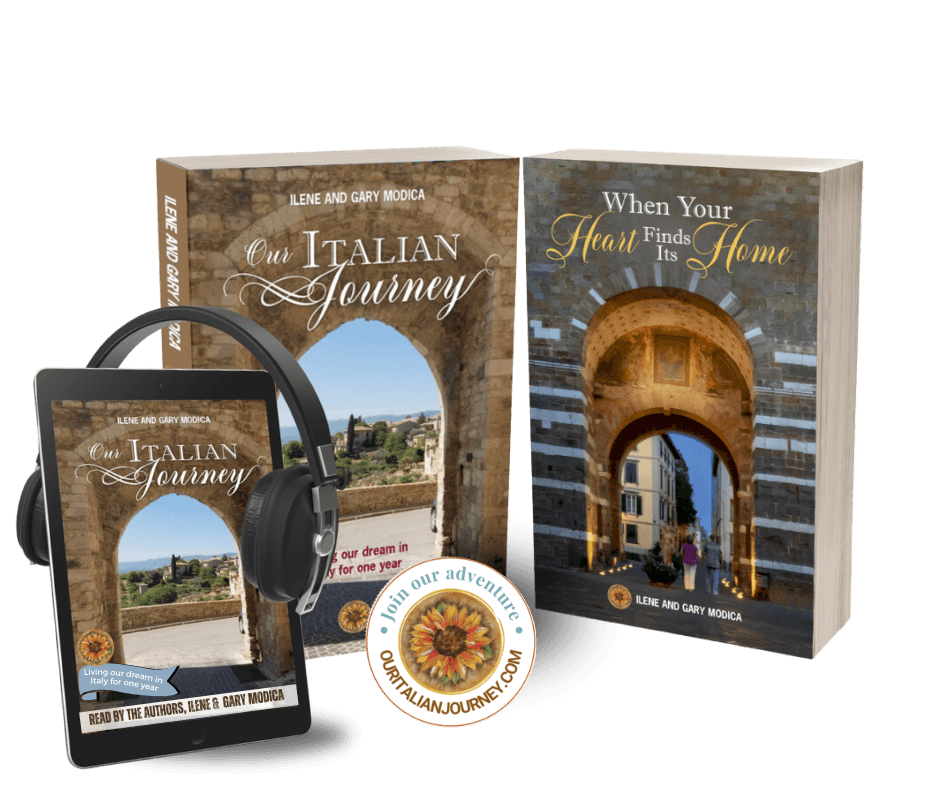
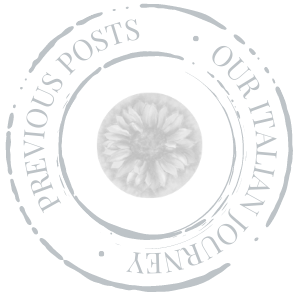


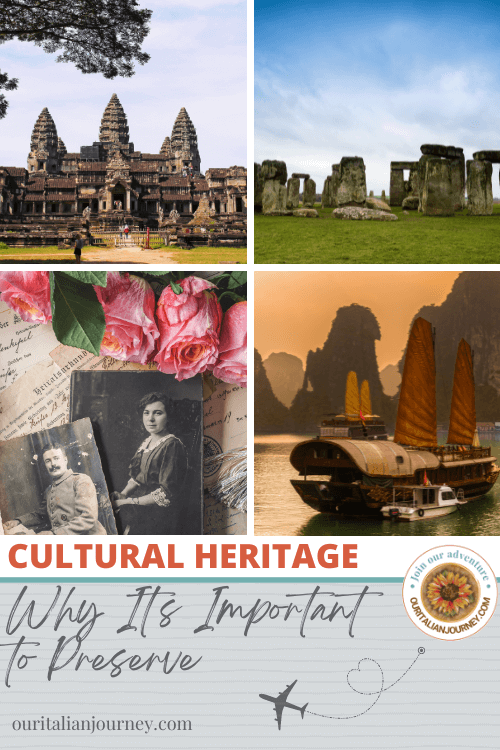

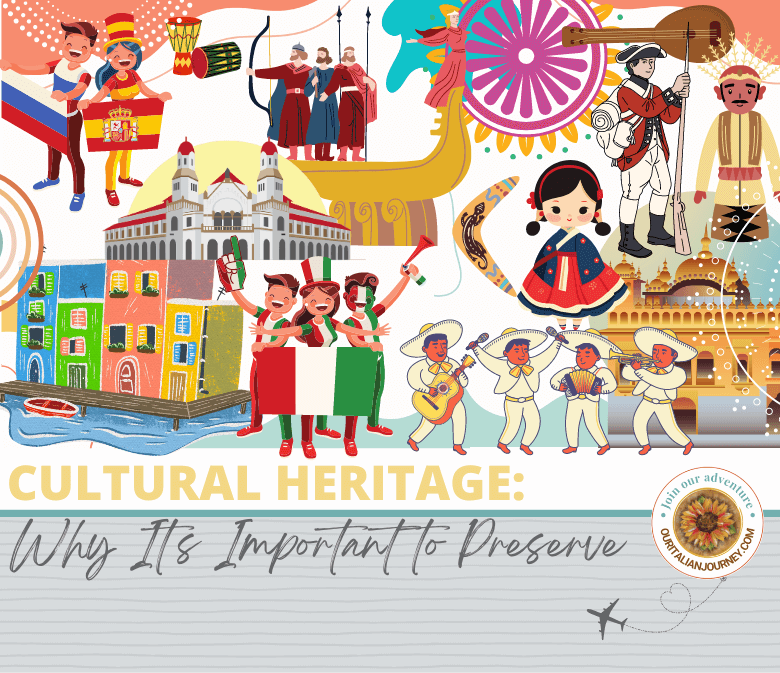


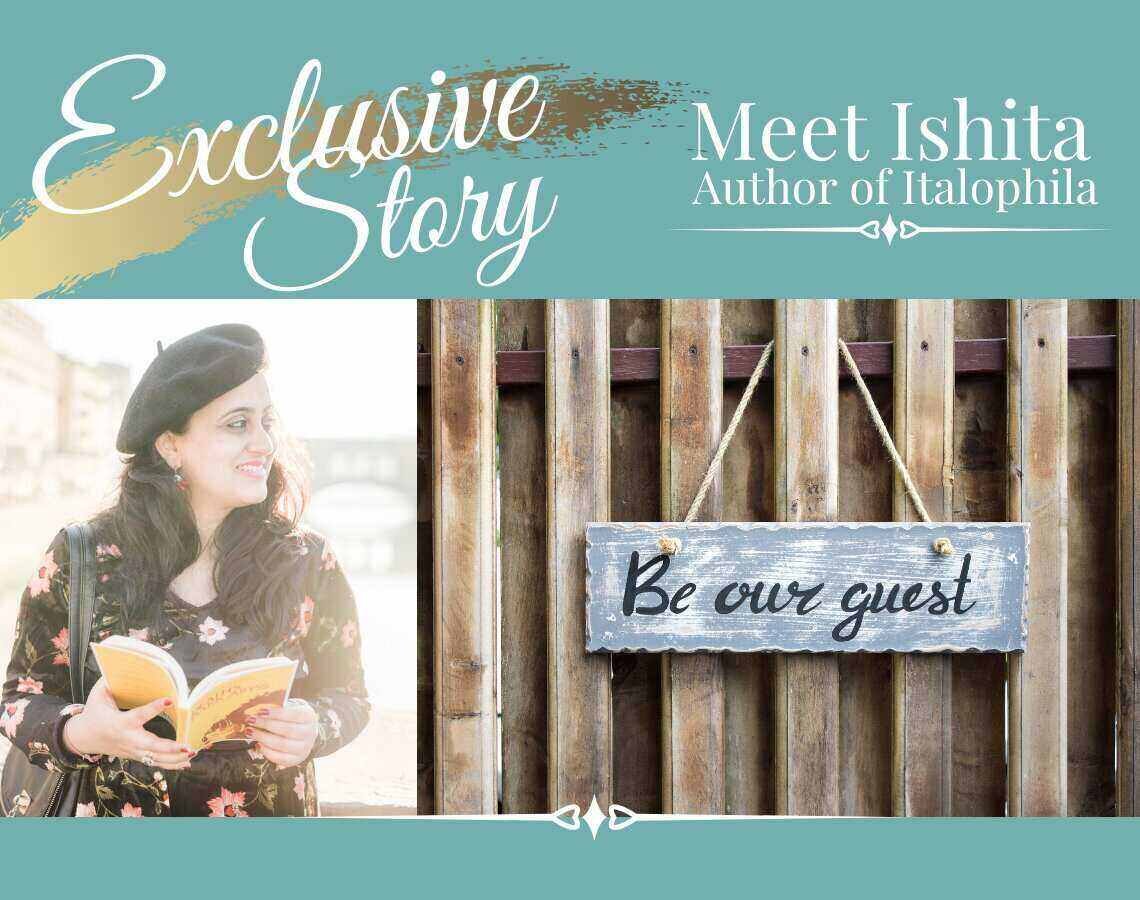
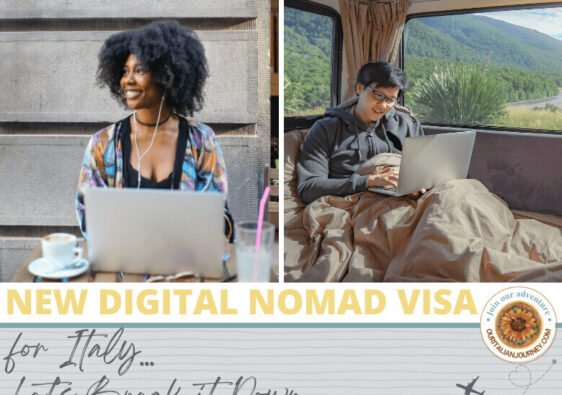

Love this post! I also regret not having asked more questions of my grandparents/parents.
Happily I have many shared family recipes and photos, and many wonderful cousins to help fill in some of those “blanks”!
My sisters and I and all of our children and grandchildren (36 in all) are going through the dual citizenship process. Applications and interviews completed for most of us at this point. This process has helped us uncover and answer some of our questions. Also, many of us have checked our DNA and ancestry.
Happily, each of us is excited to share this journey and learn from one another. And we all feel the same; “wishing our parents and grandparents were here to share their history and experiences with us.”
Thank you for this post Ilene.
Ahhhh Teresa – I love your comment and so appreciate your kind words. I always question whether people actually read the blog and you made my day today! I think its amazing 36 of you are all going through the process together – that is incredible. What a family adventure! Keep us posted on your progress!!
Yes! I agree with you 1000% about this topic!
Right now, I’m working on a project about how to connect to your heritage to create a richer life AND continue the legacy for the future. So, this post is perfectly timed.
Even if someone (like you and me) no longer has parents and grandparents to teach us about our history, we can “fill in the blanks” with traditions we can find online or in social groups.
The easiest way to connect to our heritage is with food. So, trying recipes and going out to authentic restaurants.
The next easiest way is with holidays and traditions. We can easily learn about them online.
Thank you for brining up this topic. It’s so important to preserve our heritage!
Thanks Dawn for a wonderful and insightful comment. I giggle about your food comment as that is a post scheduled for March, What Italians Eat on Special Occasions! Thanks for taking the time to give us your perspective – love it!
An excellent idea. I am struggling to connect the dots for dual citizenship as three of my four grandparents renounced their Italian citizenship to become American citizens. What you describe is the same path I was on – missed talking to my grandparents because I was too young and did not have the interest. I am now filling in what blanks I can through tedious research and hunting what snippets I can from cousins.
My Dad recently has started writing a memoir to document his life. I am hoping when he is done that we can set him up with audio and video of him reading itas we have so few pictures and very little video of the current parents even.
Best of luck on your journey and remember to back up to multiple sources as video storage degrades over time.
Thanks Angelo for suggestion to back up to multiple sources – excellent point! A great idea of recording you dad. We never think of this stuff until its too late. Thanks for being a great supporter of our journey- appreciate your participation in these posts!!
I was very fortunate to have had the opposite with my family. Many generations were alive while I was growing up, and we visited often and stories were told often. As years went by, we made sure that we labeled photos, and I have several on my walls still. My mother’s side made a very elaborate Family Tree, all bound and published, which we still refer to often. My father’s side has one too (thanks to my brother when he was in elementary school), though not as elaborate, it does show birth and immigration dates to America (and the cities which they came from). I count myself so blessed to have this information, and I agree with Ilene and encourage others to gather whatever they can. My kids do not seem very interested in any of it, but someday when they are, it will be here for them.
P.S. – I met a wonderful family in NC, whose ancestors come from the same little town in Italy as my great grandparents did. And….
2nd P.S. – Of course we read your blog…xoxox
What a wonderfl comment Susan! Thanks so much for your support of our blog and journey. You are very fortunate and love your story. I think your children will be interested when they are older… that’s the common thread I think for all of us. At least you have it all documented for them. Brava!
I came back from my month in Lucca this year with so many family stories shared by relatives I met there that I feel an obligation to set them down in a way that shareable for all of my cousins and cousins’ children. I figure my cousins’ children won’t be interested in this for another 20-30 years and our generation might not be around.
Thanks to my brother’s efforts, we delved into the old family photos while my grandmothers were still alive, and they identified who was who. Otherwise by now we wouldn’t know who half the people are in our photo albums.
I’ll also recommend StoryCorps , a nonprofit organization whose motto is “listening is an act of love”. They have wonderful resources on their website for recording conversations with our loved ones. I interviewed each of my parents in 2009 at a StoryCorps recording booth and asked them about their parents’ immigration stories and about their own childhoods. I treasure those audio interviews.
Lastly, a friend of mine’s mom shared a way of setting down memories that can be less intimidating than writing a memoir. She learned it at her local Senior Center. It’s writing individual vignettes. She has written several one-page remembrances of various aspects of her life, such as how she decided to take up painting or what they used to eat when they were kids. It relieves a person of the expectation that there be a continuous narrative thread through everything that they write, because each vignette is self-contained.
But however, we do it, this post Ilene is a great reminder that the time to start is now! Andiamo!
Love your story, Julie! I didn’t know about StoryCorps and perhaps other readers don’t either. I love the idea of the handwritten vignettes – that is a perfect idea as you get the story and her handwritting. Great recommendations and thanks so much for the informative comment. Appreciate you sharing!